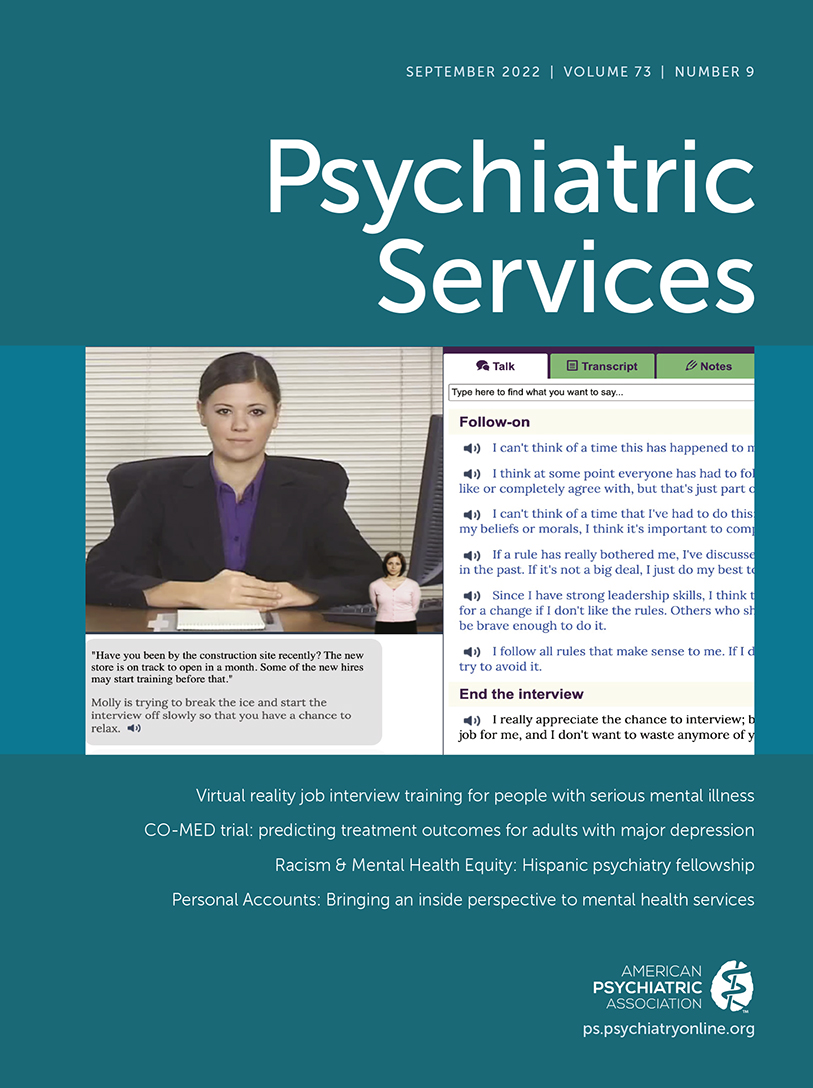Character Strength–Focused Positive Psychotherapy on Acute Psychiatric Wards: A Feasibility and Acceptability Study
Abstract
Objective:
A manualized single-session positive psychotherapy intervention was developed and tested on acute psychiatric wards.
Methods:
Participants were invited in 2018–2019 to identify positive experiences, link them to a personal character strength, and plan a strengths-based activity. The intervention’s feasibility was evaluated through fidelity to session components, character strengths identification, and activity completion. Acceptability was evaluated with self-reported pre- and postsession mood ratings, a postsession helpfulness rating, and narrative feedback.
Results:
Participants (N=70) had complex and severe mental health conditions. In 18 group sessions, 89% of components were delivered with fidelity; 80% of the participants identified a character strength, of whom 71% identified a strengths-based activity, and 58% completed the activity. The mean±SD helpfulness rating (N=23) was 8.5±1.5 (on a 10-point Likert scale), and positive mood significantly increased postsession (5.9 presession vs. 7.2 postsession).
Conclusions:
Positive psychotherapy is feasible in challenging inpatient settings, and service users with severe and complex mental health conditions find it helpful.



